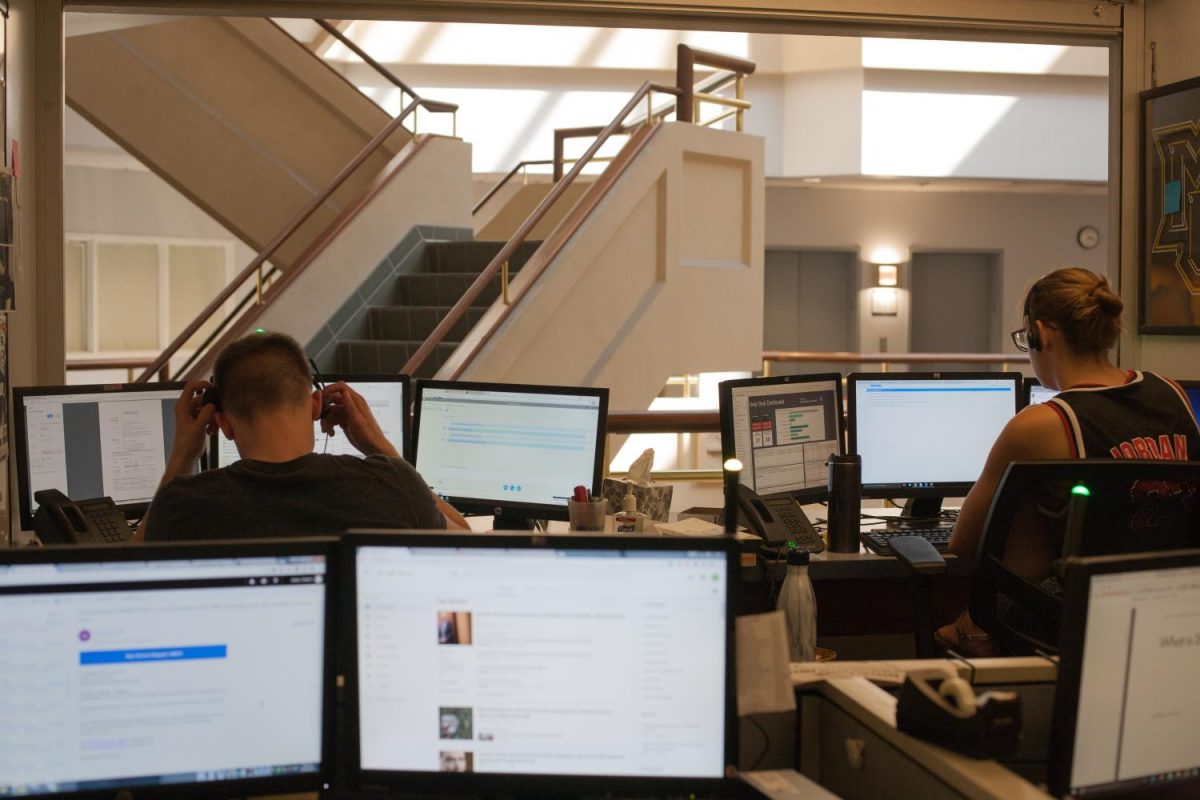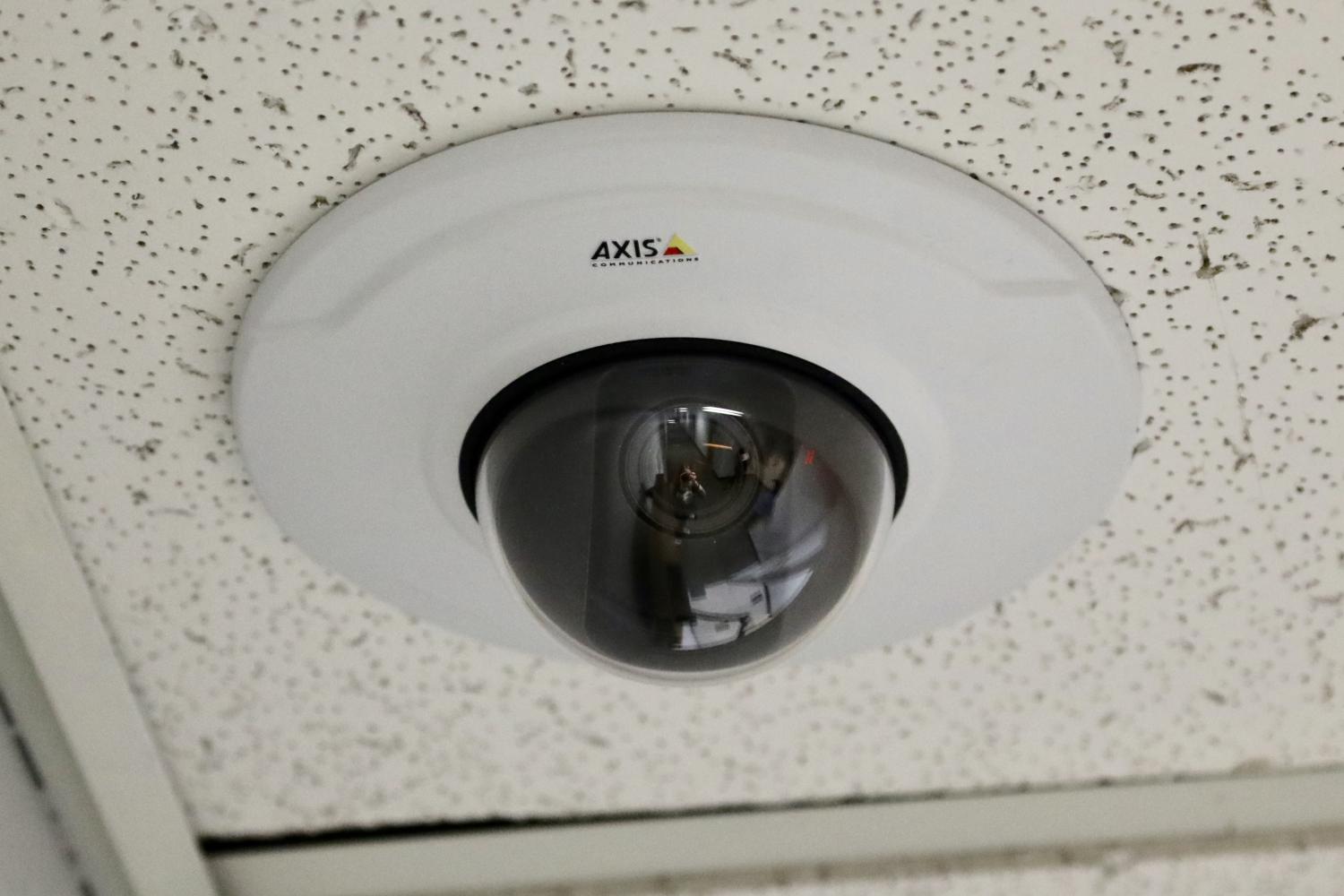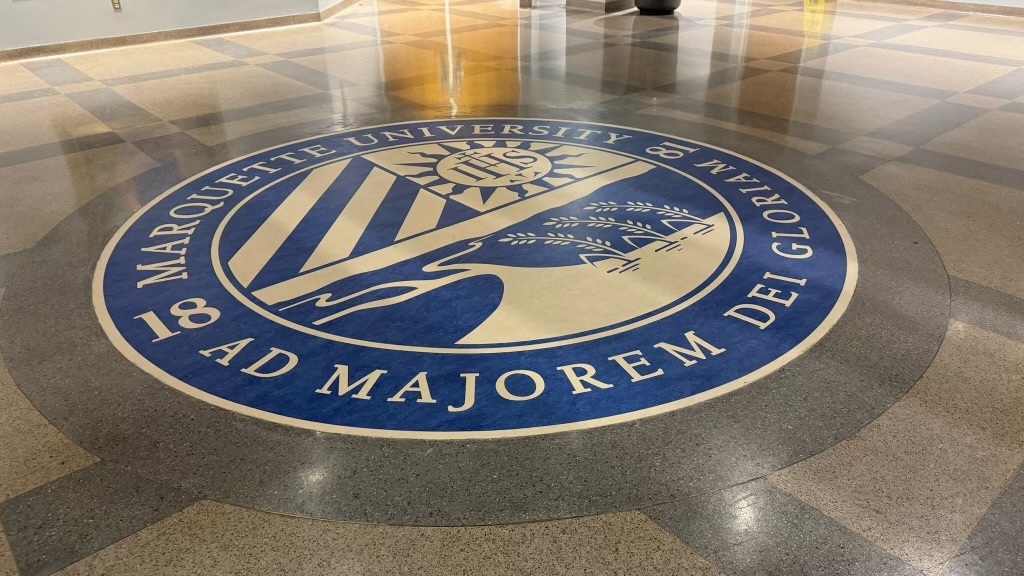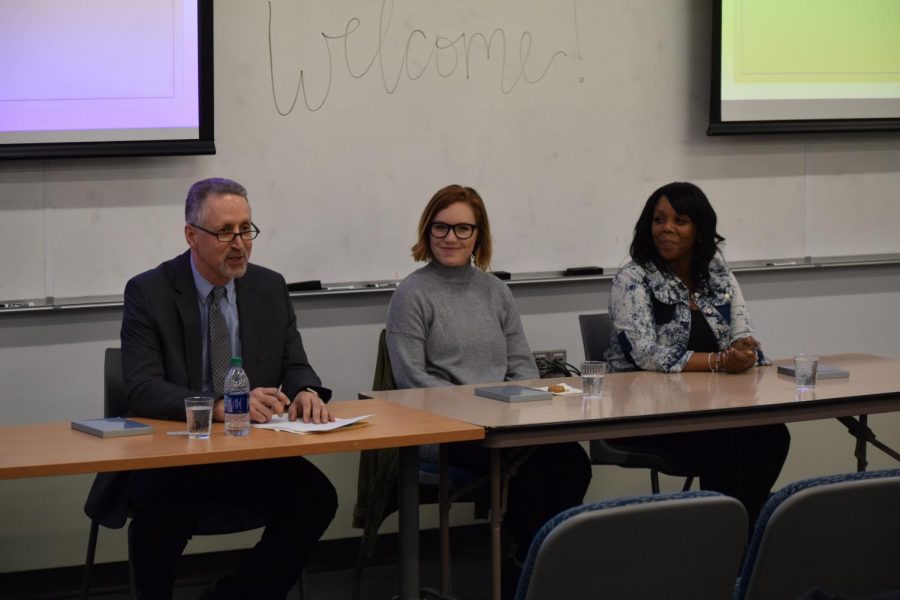Complaints about Marquette’s Wi-Fi are rarely a new topic of discussion for students, but this year has been worse than usual.
Coverage is the main cause of Wi-Fi issues, Mary Simmons, senior director of information technology services, said. There are currently about 13,000 devices connected to the university’s Wi-Fi, and the system cannot handle the demand of each student connecting multiple devices.
“When this network was first built, everybody was bringing one device,” Simmons said. “Now you have a laptop, you have a tablet, all sorts of devices. The wireless just can’t handle the demand.”
The university network is made up of about 1,700 access points, and each one can handle around 50 connections, Simmons said. If that number is exceeded, especially in popular places such as the Brew Bayou or the library, the access point won’t hold a connection.
“Your best bet is to get up and go somewhere that’s not as crowded, especially if you’re trying to do something like stream a video,” Simmons said.
The general increase of students over the years, as well as an increase in use of technology, has exacerbated the issue.
Steve Hegarty, a sophomore in the College of Health Sciences, said he remembers not being able to connect in his room in Straz Tower last year.
“My phone could not connect to the Wi-Fi, and I used an ethernet cord to get internet on my laptop all year long,” Hegarty said.
Because of the wireless nature of the access points, however, technicians rely heavily on student feedback to identify the problem.
“I need to know where it’s not working, because we can fix it,” Simmons said. “There are a number of ways you guys can communicate with us. We have a Twitter account, and you guys can tweet us, just let us know where.”
William Risen is one of two network technicians who work in the field to maintain the university’s wireless network. Risen said in cases like Hegarty’s, once he receives the complaint, he can go in to confirm the problem and install an additional access point if necessary.
Twenty-four student complaints have been submitted since the start of the school year, and 20 of those complaints were resolved in a couple of days, Simmons said. The remaining four cases are awaiting student response.
“If somebody complains, we take it very seriously, and we go scope it. If you’re having a problem, you need to call the help desk or send an email,” Risen said. “My biggest thing is (the students) can’t just tell us, ‘It doesn’t work.’ I need where doesn’t it work and when. There needs to be a little bit more information.”
However, some students’ problems aren’t isolated to one area.
“It happens all over campus,” Aileen Stanton, a sophomore in the College of Communication, said. “Whether I’m attempting to submit something to D2L or just relaxing with some Netflix after a monstrous study session, I just can’t seem to catch a break with this Wi-Fi. I’m constantly refreshing my page, disconnecting and reconnecting and restarting my computer.”
In these cases, Risen recommends taking the device to the Wired Office or Help Desk, both located in Cudahy Hall.
“That’s what the Help Desk and the Wired Office is there for. You show up, and they’re going to take care of you,” Risen said. “We’re all about you guys. It’s all about making (the students) be able to get through in four to five years.”





